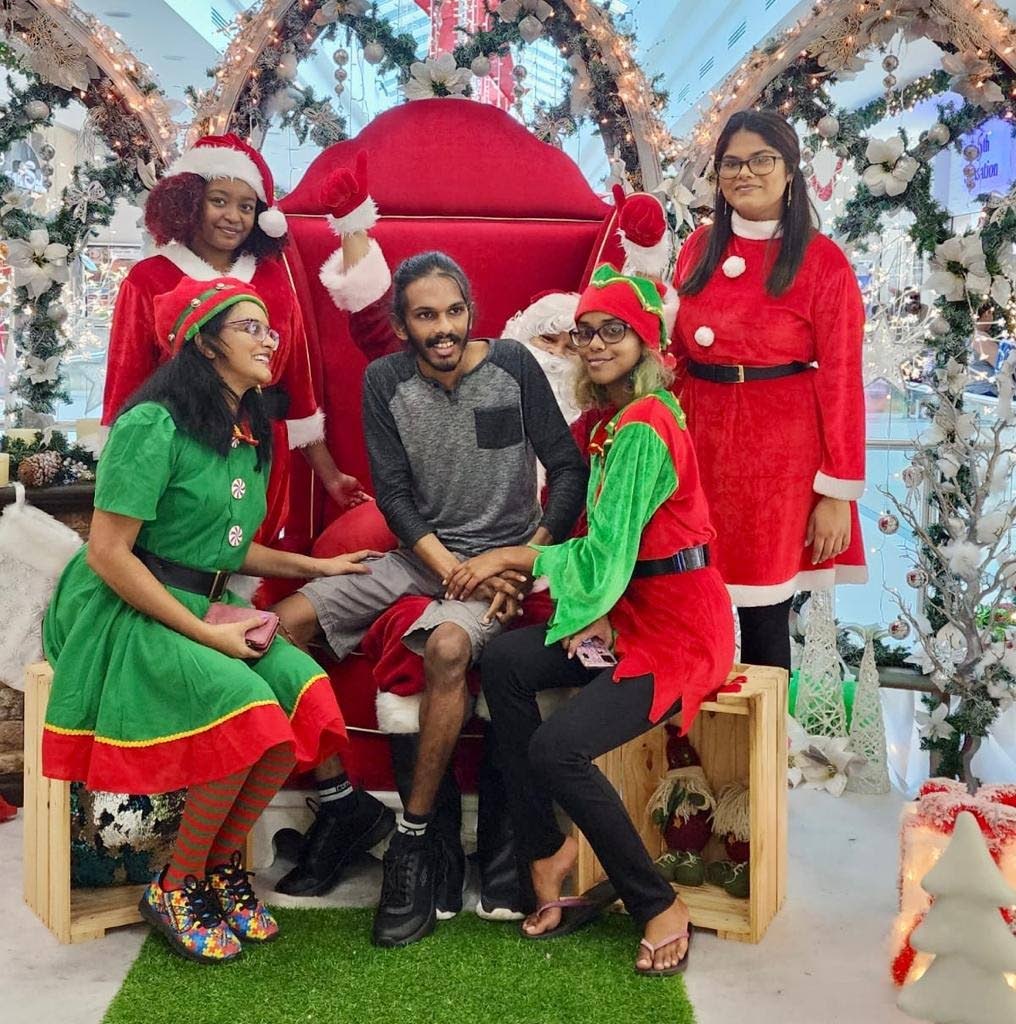Why is disability inclusion so slow in Trinidad and Tobago?

DR RADICA MAHASE
Advocating for the inclusion of people with autism and other special needs, and disability on the whole in Trinidad and Tobago, can be the most depressing, daunting task ever.
Every time I feel we have made some progress, every time I feel there is some hope for our country, something happens to highlight the reality – and the reality is that people with special needs/disabilities are really and truly treated like second-class citizens at all levels in this country.
Last week our NGO, Support Autism T&T, held its Sensory Santa event at C3 Centre. This was an event where anyone with any disability could meet Santa in a safe and sensory-friendly space.
While interacting with the public, a common comment was, “This child doesn’t look like he has a disability," or, “She looks normal." These were from adults who simply did not understand why there were some children with special needs/disabilities who could not go to the mall to meet Santa any time. The idea of including children with disabilities at a Christmas event did not even cross their minds.
I felt it is necessary to really explore why we are at such a backward stage in TT when it comes to disability inclusion.
The first thing that comes to mind is the negative way we perceive special needs and disabilities. When I say "we," I mean society, people in general, the entire country. I feel embarrassed when I see people’s attitude, the general disregard for differences, the lack of humanity and just simple respect and courtesy.
This attitude is manifested in our everyday behaviour, the little things that we do – for example, parking in spots reserved for wheelchair users, without thinking that those spots have been reserved for a reason. We don’t even think that when we park there, we might be inconveniencing someone who really needs it. This is something we see too often, with even police vehicles parked in wheelchair-accessible parking spots.

The next thing that I think about is the language we use on a daily basis which enforces negative stereotypes and disrespect for people with disabilities. Consider these:
“Boy, like yuh blind or what?”
“Yuh deaf, yuh didn’t hear meh?”
“Yuh handicapped, how yuh walking so?
“Yuh dumb?”
These are common expressions in TT, which are used frequently by people in general. I remember, some time ago, hearing an MP ask another member, while Parliament was in session, if he was blind.
I mean really, when our educated and "elite" citizens are using that kind of language, do you expect any different from our children, or society in general?
In most people’s minds, using these terms may seem harmless enough. It’s just words to express how we feel, and so on.
The thing is, historically these words have been used to refer to various types of disabilities. The harm of terms and uses like this is indirect, but no less real. They all reinforce the idea that a good way to describe bad things is to compare them to disabilities, or to people with disabilities. They contribute to ableism (discrimination in favour of able-bodied people), which is harmful because they validate discriminatory assumptions about people with disabilities.
The saddest thing is that so many people use these terms without even thinking about it – this alone shows the extent to which our lack of respect for people with disabilities is engrained in our everyday behaviour and mindset.
Additionally, there is the general idea that people with disabilities are somehow inferior and less deserving. For me, it is rather perplexing that, as a society, we believe that people should be "normal."
What exactly is "normal"? Why do we think that is it correct to say that someone is normal because that individual doesn’t have a disability. What is even worse is the deeply entrenched perception that "normal" people are somehow perfect and thus superior and more deserving in every way. Consequently, our attitude is that someone with a disability is not "normal" and therefore inferior or not deserving.
When I think about our perceptions of "normal," I remember the words of Independent Senator Paul Richards at the opening of Rahul’s Clubhouse a few months ago. Richards said, “I hate the word normal, because none of us are normal. If we look at ourselves objectively, if every one of us looks at ourselves objectively, we may not have visible disabilities, we may not have visible challenges because we are coping behind the scenes.
"But we all have disabilities, every single one of us, and if we don’t think we have them now, add 40 years to your life and you will have a disability of some kind. The mindset that, 'Well, those people with disabilities...' is a misnomer, because we all have disabilities.”
Given the above, the deeply-entrenched perceptions and misconceptions, and the extent to which they are manifested in our everyday mentality and behaviours, it may appear that inclusion is beyond our reach. It feels as if inclusion will continue to be something we can only hope for. Sometimes inclusion appears as mystical as the pot of gold at the end of the rainbow.
Yet, those of us who are committed to making inclusion a reality just have to continue to take one step at a time and to do our individual part, because only together can we make any change in this country.
Radica Mahase is the founder/director of Support Autism T&T

Comments
"Why is disability inclusion so slow in Trinidad and Tobago?"